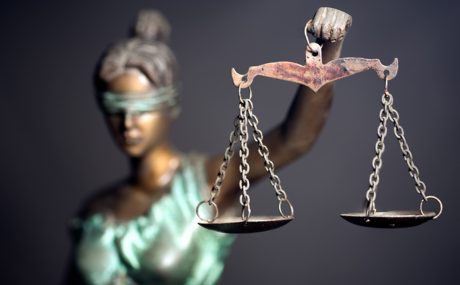It is settled law that internet service providers (ISPs) can be injuncted to block access to websites selling counterfeit goods. The recent decision of the Supreme Court in Cartier International AG and others v British Telecommunications Plc and another has determined that the costs of implementing such injunctions should be borne by the company seeking them and not by the ISPs themselves. Oliver Fairhurst examines the decision.
For some years, brands have been able to make use of specific platforms’ own reporting tools (eg the VeRO programme on eBay) to get listings, pages and accounts being used to sell counterfeits taken down.
However, where counterfeits are being offered for sale on websites, brands have often had little alternative than to try to identify and pursue the website operator or ask the hosting company to remove the offending web page. Even where the website is hosted by a company that agrees to remove the website, success is often short-lived as the website switches to another host, usually one that shields the owner’s details, does not respond to take-down requests and is based in a jurisdiction where bringing proceedings is difficult if not impossible.
The landscape changed in 2014 when the English court ordered various ISPs to block access to certain websites that were being used to sell counterfeit goods (the Cartier decision). The case was brought by the Richemont Group, which is the owner of the famous Cartier, Montblanc and IWC brands.
While so-called “blocking injunctions” have been available for use in the UK in relation to websites used for copyright infringement (eg streaming of content) since the introduction in 2003 of s.97A to the Copyright Designs and Patents Act 1988, the Cartier decision was the first time that such injunctions had been ordered in relation to trade mark infringement (for which there was no such express right).
In the absence of a specific provision to assist trade mark proprietors, the court made use of its general power to grant injunctions under s.37(1) of the Senior Courts Act 1981. While the judge, Mr Justice Arnold, ordered that the claimant rights holders should generally bear the costs of the application (unless it was opposed), the ISPs were ordered to bear the costs of implementation of the order (eg of managing and configuring the blocking system).
Mr Justice Arnold’s first instance decision was upheld by the Court of Appeal, including in relation to the implementation costs. The only point taken on appeal to the Supreme Court related to the costs of implementing the website blocking. The ISPs were understandably concerned that, in the context of the massive proliferation of websites selling counterfeit products, the costs of complying with these orders would become burdensome.
In a judgment given by Lord Sumption, the Supreme Court disagreed with both of the courts below and ordered that intermediaries, ie ISPs, should not be liable for the implementation costs. In summary, the court found that there is no legal basis for requiring ISPs to bear those costs and that, as such, they could not be ordered to do so.
The upshot of this decision is that rights holders remain able to seek orders requiring that ISPs block specific websites that are identified by the claimant(s) as infringing IP rights (both trade marks and copyright, and arguably other IP rights, such as designs). (This is a crucial tool in the armoury of rights holders seeking to prevent infringement and counterfeiting.) However, the rights holders must bear the costs of the injunctions, including their own legal costs and the ISPs’ costs of implementation.
While this case dealt specifically with costs of implementation in the context of an application under s.37(1), it raises the question whether the costs regime for copyright blocking injunctions ordered under s.97A has also changed such that the ISPs can recover implementation costs in those cases as well. This will be important for media companies keen to stop illegal streams and downloads.
You can find further information regarding our expertise, experience and team on our Intellectual Property Disputes page.
If you require assistance from our team, please contact us or alternatively request a call back from one of our lawyers by submitting this form.
Subscribe – In order to receive our news straight to your inbox, subscribe here. Our newsletters are sent no more than once a month.




